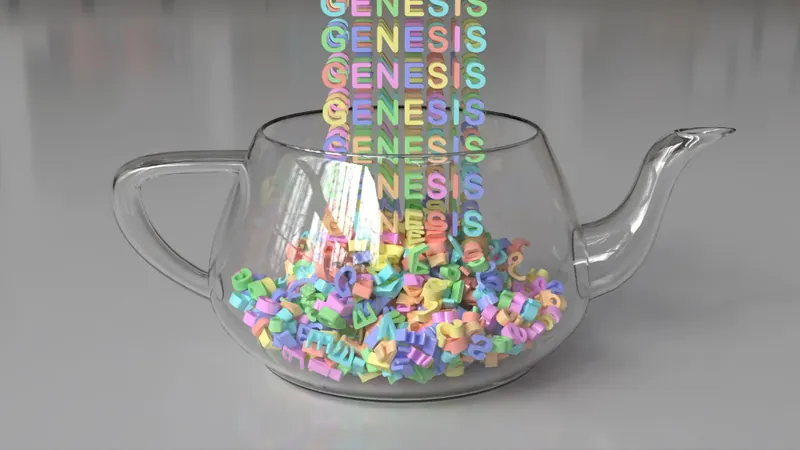
Revolutionizing Robot Training: The Genesis Simulation Platform
2024-12-20
Author: Nur
Introduction
A groundbreaking new platform, Genesis, was unveiled on Thursday by a coalition of over 50 researchers from multiple universities, in collaboration with industry giants such as Nvidia and the MIT-IBM Watson AI Lab. This innovative artificial intelligence simulation engine promises to transform the way robots are developed and trained.
The Need for Genesis
Robots, which increasingly rely on artificial intelligence for navigating their environments and executing tasks, traditionally undergo a grueling trial-and-error learning process. This requires extensive physical hardware and can take an agonizingly long time—potentially months—to achieve the desired performance levels. But, thanks to the Genesis platform, this arduous reality is set to change.
Accelerated Learning Process
Unlike real-world training, Genesis allows researchers to train AI models within virtual environments, significantly accelerating the learning process. Simulations can operate at speeds up to 10,000 times faster than real-world training, condensing a decade's worth of learning into just one hour of computational time. This innovation opens up new avenues for rapid development in robotics, making advanced training accessible like never before.
Sophisticated Physics Engine
Genesis is powered by a sophisticated physics engine capable of simulating a variety of materials and environmental phenomena, such as rain. By employing state-of-the-art simulation algorithms known as physics solvers, the platform generates diverse and robust data sets essential for training AI models. The developers have incorporated low-level optimizations, such as auto-hibernation, which conserves computing resources by identifying and minimizing the rendering load of static virtual objects.
RoboGen Tool: Customizable Robotics Creation
One of the standout features of Genesis is the RoboGen tool, which empowers users to create unique robotic devices—ranging from robotic arms to autonomous vacuums—with tailored functionalities. RoboGen also allows for customizable responses to malfunctions, reflecting real-world unpredictability.
User-Friendly Interface
The user-friendly interface of Genesis is another game-changer. Instead of grappling with complex coding, users can effortlessly design simulations using natural language descriptions. This intuitive approach significantly enhances accessibility, enabling a broader range of developers and researchers to create and test robotic behaviors without needing extensive programming expertise.
Facilitating AI Projects
Beyond mere task performance, Genesis is poised to also facilitate the generation of critical training data for various artificial intelligence projects. Users can capture high-quality footage of their simulations, customize camera angles, and utilize advanced ray tracing techniques to achieve enhanced visual fidelity. This means that researchers can tailor their training datasets with precision, matching the specific requirements of their AI projects.
Availability of Genesis
Initially, only the physics engine and the RoboGen module are available to the public under an open-source license, but the developers have promised that the chat-based natural language simulation design interface will be released in the near future.
Conclusion and Expectations
With the advent of Genesis, the future of robot training and development has never been brighter. Expect to see innovations in automation and AI applications soar as researchers leverage this powerful tool to push the boundaries of what robots can achieve. Don’t miss out on the next wave of technological evolution—Genesis could be the key to unlocking a new era in robotics!



 Brasil (PT)
Brasil (PT)
 Canada (EN)
Canada (EN)
 Chile (ES)
Chile (ES)
 España (ES)
España (ES)
 France (FR)
France (FR)
 Hong Kong (EN)
Hong Kong (EN)
 Italia (IT)
Italia (IT)
 日本 (JA)
日本 (JA)
 Magyarország (HU)
Magyarország (HU)
 Norge (NO)
Norge (NO)
 Polska (PL)
Polska (PL)
 Schweiz (DE)
Schweiz (DE)
 Singapore (EN)
Singapore (EN)
 Sverige (SV)
Sverige (SV)
 Suomi (FI)
Suomi (FI)
 Türkiye (TR)
Türkiye (TR)